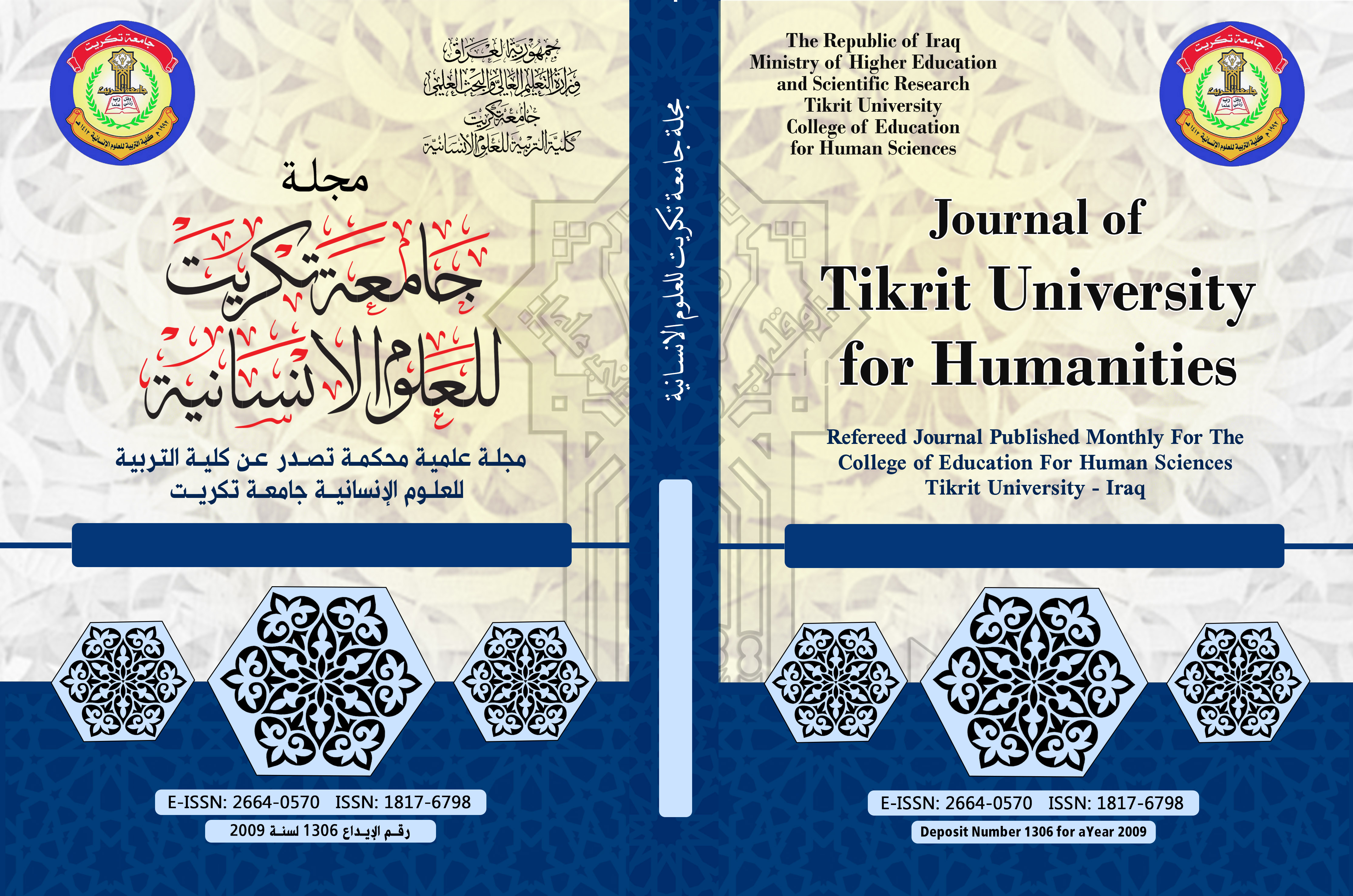Abstract
This study aims to reveal the effect of some generative learning strategies on developing university students' productive thinking skills in English language. Also, to reveal which generative learning strategies have more effect on students' productive thinking skills. The participants were 57 male and female students from 2nd grade at the Department of English, College of Arts, University of Anbar during the second semester of the academic year 2023-24. An instruction based- summarizing, mapping, drawing, imagining, self-testing, self-explaining, teaching, and enacting proposed program was used to train the students to develop their productive thinking skills. A pre-test and a post-test were used to collect the data of the study. The results revealed a significant difference between the mean scores of the experimental group and the control group in favor of the experimental group students. Additionally, there was no significant difference at (α=0.05) between the productive thinking skills of male and female students due to the generative learning strategies. The most effective generative learning strategies for developing students' productive thinking skills were ranked as follows: mapping, self-explaining, self-testing, summarizing, teaching, enacting, drawing, and imagining. It is concluded that students preferred strategies that provided more positive facilitation compared to others in enhancing their productive thinking skills. The selection of strategies was influenced by factors such as ease of use, usefulness, and those that saved time and effort for the students.
Keywords
generative learning strategies
mapping strategy
productive thinking skills
self-explaining strategy
self-testing strategy
Abstract
تهدف الدراسة إلى الكشف عن تأثير بعض استراتيجيات التعلم التوليدي في تنمية مهارات التفكير المنتج في اللغة الإنجليزية لدى طلبة الجامعة. وكذلك الكشف عن أيّ استراتيجيات التعلم التوليدي لها تأثير أكبر على مهارات التفكير المنتج لدى الطلبة. بلغ عدد المشاركين 57 طالبا وطالبة من الصف الثاني في قسم اللغة الإنجليزية بكلية الآداب بجامعة الأنبار خلال الفصل الدراسي الثاني من العام الدراسي 2023-2024. تم استعمال برنامج مقترح قائم على التلخيص، والرسم، والتخيل، والاختبار الذاتي، والتفسير الذاتي، والتدريس، والتنفيذ لتدريب الطلبة على تنمية مهارات التفكير المنتج لديهم. تم استعمال اختبار قبلي واختبار بعدي لجمع بيانات الدراسة. تم استخراج صدق وثبات البرنامج وكذلك الاختبارين القبلي والبعدي. اظهرت نتائج الدراسة وجود فرق ذي دلالة إحصائية بين متوسط درجات طلاب المجموعة التجريبية والمجموعة الضابطة لصالح طلاب المجموعة التجريبية. بالإضافة إلى ذلك، لا يوجد فرق ذو دلالة إحصائية عند مستوى (α=0.05) بين مهارات التفكير الإنتاجي لدى الطلاب الذكور والإناث يعزى الى استراتيجيات التعلم التوليدي. وكانت أكثر الاستراتيجيات التوليدية فعالية في تطوير مهارات التفكير الإنتاجي للطلاب مرتبة على النحو الآتي: التخطيط، الشرح الذاتي، الاختبار الذاتي، التلخيص، التدريس، التمثيل، الرسم، والتخيل. واستُنتج أن الطلاب فضلوا استعمال الاستراتيجيات التي وفرت تسهيلات أكثر إيجابية مقارنة بالاستراتيجيات الأخر في تطوير مهارات التفكير الإنتاجي لديهم. وكان اختيار الاستراتيجيات معتمداً على عدة عوامل مثل سهولة الاستعمال ، والفائدة، وأفضلية الاستراتيجيات التي توفر الوقت والجهد للطلاب.
